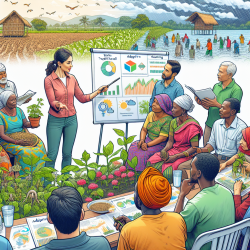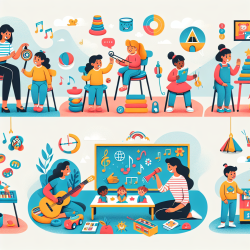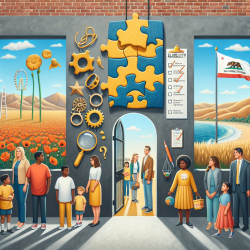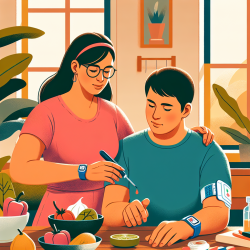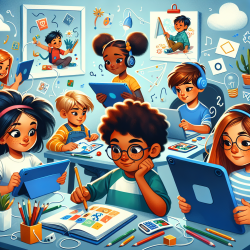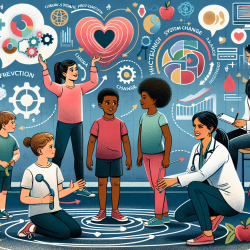Introduction
In the ever-evolving field of special education, practitioners are constantly seeking innovative ways to enhance their skills and improve outcomes for students. One often overlooked but crucial aspect is the integration of gendered knowledge and adaptive practices, as highlighted in the research article "Gendered Knowledge and Adaptive Practices: Differentiation and Change in Mwanga District, Tanzania" by Smucker and Wangui. This blog post aims to explore the findings of this research and provide insights on how practitioners can implement these outcomes to improve their skills and encourage further research.
Understanding Gendered Knowledge and Adaptive Practices
The research conducted in Mwanga District, Tanzania, delves into the complex interplay between gendered knowledge and adaptive practices in the context of climate change adaptation. The study reveals that local knowledge, often shaped by gendered mechanisms of access, plays a significant role in determining vulnerability and adaptive capacity to climate change. This knowledge is not static but dynamic, evolving through local experimentation and learning.
For practitioners in special education, understanding the nuances of gendered knowledge can be transformative. It encourages a more inclusive approach, recognizing the diverse experiences and perspectives of students, particularly those from marginalized backgrounds. By acknowledging and integrating gendered knowledge, practitioners can create more effective and culturally responsive educational strategies.
Implementing Research Outcomes
To implement the outcomes of this research, practitioners can consider the following strategies:
- Engage with Local Knowledge: Just as the research highlights the importance of local knowledge in climate change adaptation, practitioners should engage with the local knowledge of students and their communities. This involves listening to students' voices, understanding their cultural contexts, and incorporating their experiences into the learning process.
- Promote Gender Equity: The study underscores the need for gender equity in resource distribution and access to knowledge. Practitioners can advocate for gender-sensitive policies and practices within educational settings, ensuring that all students have equal opportunities to succeed.
- Foster Collaborative Learning: Collaborative learning environments can facilitate the exchange of diverse knowledge and experiences. Practitioners can create opportunities for students to work together, share their perspectives, and learn from one another.
- Encourage Further Research: The dynamic nature of gendered knowledge calls for ongoing research and exploration. Practitioners can contribute to this body of knowledge by conducting action research, documenting their findings, and sharing insights with the broader educational community.
Conclusion
Incorporating gendered knowledge and adaptive practices into special education can lead to more inclusive and effective educational outcomes. By engaging with local knowledge, promoting gender equity, fostering collaborative learning, and encouraging further research, practitioners can enhance their skills and contribute to a more equitable educational landscape.
To read the original research paper, please follow this link: Gendered knowledge and adaptive practices: Differentiation and change in Mwanga District, Tanzania.
